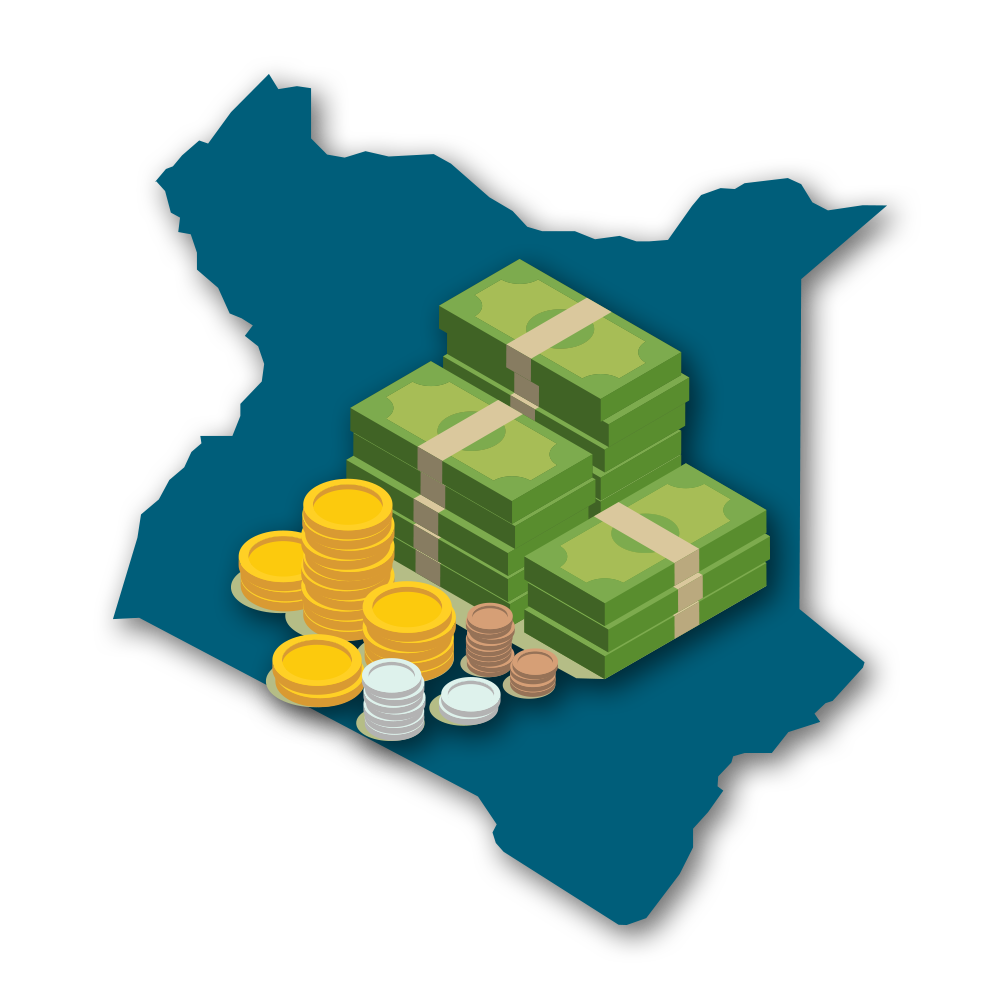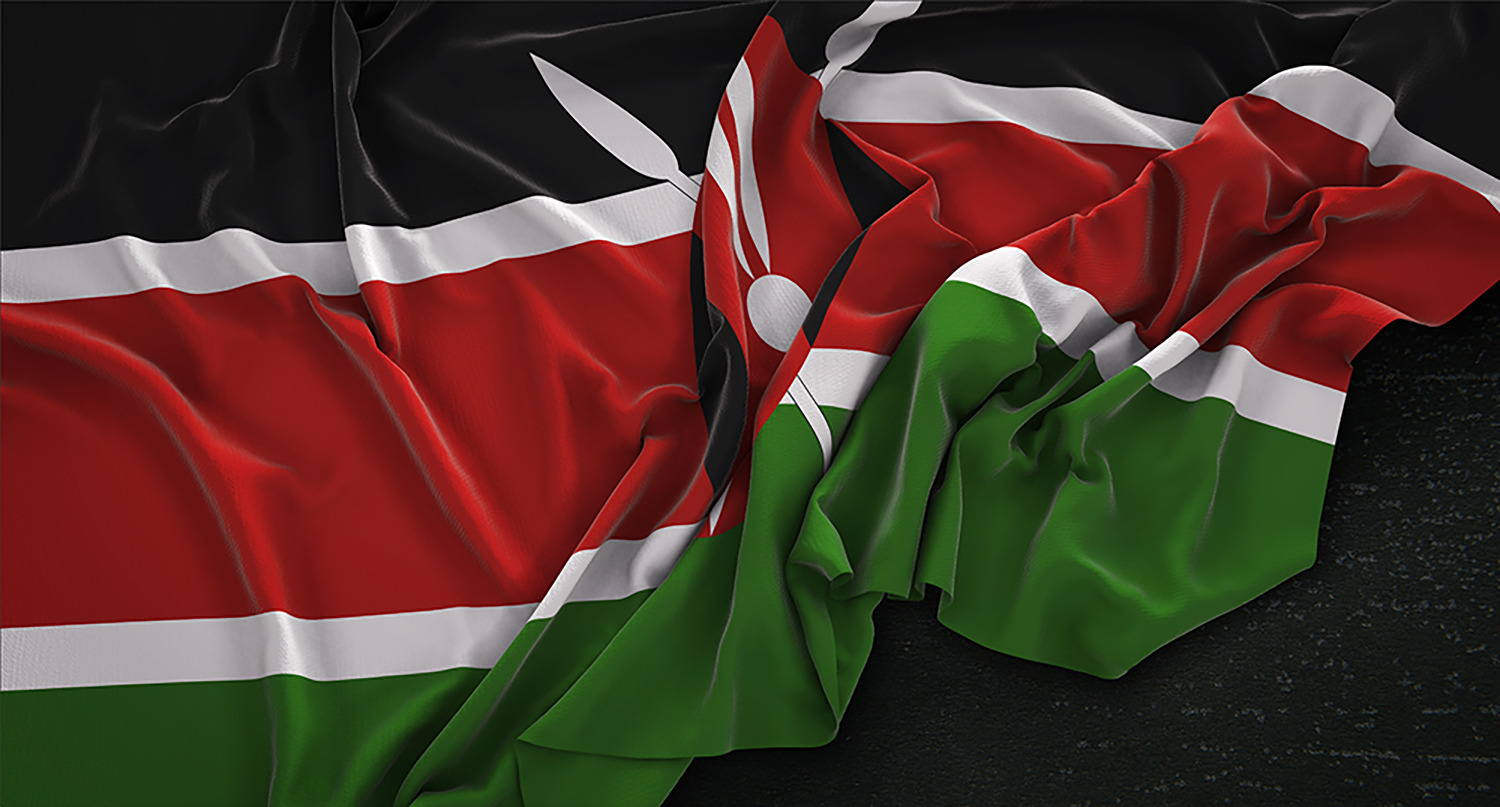No Unga Tax – Connecting taxes for the rich and poor

Abstract
One way wealth is extracted from the global south is through the network of tax havens, which, by allowing the rich to hide their wealth, pushes the tax burden onto those with the least ability to pay. We intervened to draw attention to how the City of London was extending its influence in East Africa by trying to make Kenya a tax haven for the region, and the Kenyan government’s supporting role in taxing basic goods, like maize (or Unga, in Swahili) instead of the hoarded wealth of the elite.
Context
Since The Rules’ (TR) launched in November 2012, we engaged in a long-term strategy to tackle the tax haven system in ways that spoke to ordinary people.
Our first target was the City of London. By focusing on London, and developing highly accessible imagery and language – e.g. Tax Haven Capital of the World – we are working towards both expanding the audience for the issue and starting to re-frame the problem of inequality and poverty.
Having established this narrative, we shifted some attention to Kenya, where there was evidence that the City of London was working with the Kenyan government to turn the country into Africa’s flagship tax haven. To ensure this story resonated with domestic audiences, we built a coalition of organisations around a very pressing national tax issue – the proposed 16% increase in taxes on basic commodities in the VAT Bill – and began to tell a story about the connections between efforts to impose taxes on the poor while planning to become a tax haven for the rich. We collaborated with the coalition to organize a campaign dubbed ‘Unga tax’ (unga is maize flour in Swahili, a staple food in Kenya and was one of the basic commodities to be taxed). This removed the obscurity of the word VAT and directly related the narrative of the campaign to the concerns of ordinary citizens.
Narrative Intention
The objectives of the No Unga Tax campaign were:
- To get basic goods removed from the VAT Bill;
- To use the public narrative generated by the VAT Bill campaigning to increase awareness amongst target audience of attempts by the government and the City of London to move Kenya towards becoming a tax haven;
- To establish strong partnerships and organizational visibility for existing movements in Kenya;
- To stress test Crowdring (CR), our mobile petition platform that we had created at the time.
Method and Execution
The ‘No Unga Tax’ campaign was designed to rally Kenyans to oppose the proposed VAT bill – a highly regressive bill that was proposing to increase Kenya’s tax base through taxing staple goods such as bread, milk, and maize flour.
We pulled together a broad based coalition of activists and civil society organisations from a range of social movements by actively making the case that this issue affects all parts of Kenyan society. This coalition included Tax Justice Network Africa, East African Tax and Governance Network, Bunge la Mwananchi (the People’s Parliament), Bunge la Wamama Mashinani (the Women’s Parliament), Disability Focus Africa (Kenya), Kamukunji Youth Congress, Kenyan Asian Forum, Unga Revolution, and the Kiambu Young Women Alliance.
Together, we crafted a strategy to engage people within multiple economic strata in Kenya around tax justice that included multiple tactics and messaging. As part of deepening this work, teach-ins within the coalition enabled this broad base to have peer learning to ensure everyone was able to harness their strengths in the coalition.
The coalition then organized a series of community forums across Nairobi that particularly targeted informal settlements and low-income areas. In addition to public outreaches that were carried out in matatus (public buses), trains, at football matches, on social media, radio spots, newspaper ads and articles.
Crowdring calls
%
Concern among people
Links and Resources:
Target the rich and luxury items for more taxes, not unga, milk or bread
Local coverage
Is Kenya Being Shaped into Africa’s Flagship Tax Haven?
By Martin Kirk & Gathoi Blessol
Activism Cannily Enabled By Millions Of (Free) Missed Calls
Article in FastCo
Launch article:
https://www.aljazeera.com/indepth/opinion/2013/06/20136461539703262.html
Popular coverage:
https://www.nation.co.ke/oped/opinion/440808-1883212-atmekez/index.html
Coverage of Unga Tax:
https://www.nation.co.ke/lifestyle/dn2/As-food-prices-rise-brace-yourself-for-an-Unga-war/957860-1886176-bnu2c5z/index.html
Coverage of mobilizing work:
http://www.ipsnews.net/2013/06/kenyans-mobilise-against-taxing-the-poor/
https://www.fastcompany.com/3021813/activism-cannily-enabled-by-millions-of-free-missed-calls
https://www.pambazuka.org/governance/tax-justice-kenya
Coverage of international tax haven links:
https://www.standardmedia.co.ke/article/2000086721/nairobi-s-tax-shelter-status-booming-as-firms-flee-tough-laws
Continued coverage on Kenya being turned into a Tax Haven
https://www.youtube.com/watch?v=2U3qJ7LleIU
Lessons
The campaign succeeded in its initial objective: on June 21st, the National Treasury announced the removal of the 16% tax on basic commodities from the VAT Bill. This was an immense success as it brought a piece of legislation with the potential for vast and detrimental effects on the most vulnerable in society, out of relative obscurity to public prominence, and created large scale opposition to the nefarious provisions bill within a broad range of society.
Not only did communities and the public register their opposition to the bill by signing our Crowdring petition in large numbers, but also, members of parliament committed to fight the bill and an array of actors voiced public support to the campaign demands including the International Trade Union Confederation’s Africa branch, the Consumers Federation of Kenya and high profile constitutional experts.
The second objective, of trying to use the Unga campaign to tell the larger story of Kenya becoming a tax haven, was less well achieved. We found that the strength of the VAT Bill angle created the foundations for the larger story that was never fully realized.
We were able, with our networks and allies, to create a coherent, cohesive, horizontal coalition across issues with organisations that ranged from collectives to formalized policy NGOs. The coalition was self- organising and The Rules remained a member rather than the leader. Some of our partners had not worked on tax justice but felt that the issue was too important to their constituents to ignore. Others had a mandate exclusive to tax justice but had been unsuccessful in joining forces across issue based movements and in generating public discourse of any kind on the issues. This was the first time that many coalition members were working together. We successfully created and implemented a joint plan to use the strengths of our members and work together towards our common objective.
Some indicators of success include:
- The campaign generated about 210K Crowdring calls (70K that we captured, and about another 150K that Safaricom – the Vodafone owned telecom company- kept from us).
- The campaign brought the VAT bill into the national discourse – during the campaign a country-wide poll showed that Unga tax was the number one issue of concern for Kenyans at 58%. The next closest issue of consensus only garnered 9% concern.
- The campaign received strong media attention and was featured by the BBC Kiswahili, Ghetto Radio, QFM and NTV. Radio Africa stations (Classic and Kiss FM) carried sound bites for three days on their prime news. Articles referred to the campaign in nationwide newspapers The Standard and The Nation. African and international platforms, including Al Jazeera, Think Africa Press, and AllAfrica, carried articles and information about the importance of organizing and mobilizing for fair and just tax legislation for the Kenyan majority
Here are some key lessons learned for those interested in culture hacking work:
- It is essential to work with existing social movements and civil society groups. ring social movements and local groups with existing “organizing infrastructure” at a much earlier stage in the development of any cultural intervention, is crucial. There is no substitute for community organising. We know that, in order for democratic change to happen, all socio-economic classes, especially the most marginalized, need to discuss the issues that affect them the most. By working with grassroots community groups, we had everyone from garbage collectors using their routes to hand out our posters to boda boda (motorcycle taxi) drivers displaying our stickers. This was the key driver of conversation and eventually a citizen involvement.
- We can identify global issues and use a unifying frame, but we need to be flexible on how long we think it can take. The objective of linking tax havens for the rich and state subsidization by the poor proved difficult in this first phase, but was the right objective. Linking local issues to a broader global system helps contextualize these struggles and politicizes our membership base so they are more likely to be involved in other global actions.
- Missed calls via the Crowdring platform made contextual sense in 2013 in Kenya. There is no one-size-fits-all tactic. What worked for this specific moment was that all of our campaigning activity and media led people to the CR missed call number which proved an extremely helpful unifying action.
- We need to be more creative with global solidarity actions. In this campaign, we ran a relatively simple global petition to get people around the world to stand in solidarity with campaigners in Kenya. The response was less than hoped for, and played only a minor role in the success of the campaign. We believe the reason for this is two-fold. Firstly, the call was somewhat abstract for people, in that it asked them to make too big a cognitive leap in being able to understand and see as credible the demands we were making in Kenya. Secondly, the action was not very creative. Signing a simple online petition is not the most engaging action, and we will need to work on devising new tactics and modalities.
- Media coverage is best done nearest the outlets, and the focus in different contexts can vary. In Kenya, we hired a local publicist to help us generate national coverage. This was a good move that paid off and, as described above, we saw widespread coverage in Kenya, focused primarily on the VAT Bill angle. At the same time, the global TR team generated global coverage that focused on the tax haven angle, for example in Al Jazeera and Common Dreams. Taken together, the single narrative was strong, and local partners and key analysts on the ground confirmed that the government of Kenya made the connections and felt the pressure of global citizen demand.

About The Rules
The Rules (TR) was an activist collective that existed from 2012 to 2019. In its eight years of existence it focused on addressing the root causes of inequality, poverty and ecological break down through narrative and cultural interventions. TR worked directly with social movements to inform the nature of interventions, and worked with journalists, think tanks, independent researchers and others to reframe and amplify alternatives to help midwife post-capitalist realities.
Creative Commons License
All The Rules content is Creative Commons Share Alike 4.0
You are Free to:
- Share — copy and redistribute the material in any medium or format
- Adapt — remix, transform, and build upon the material for any purpose, even commercially.

